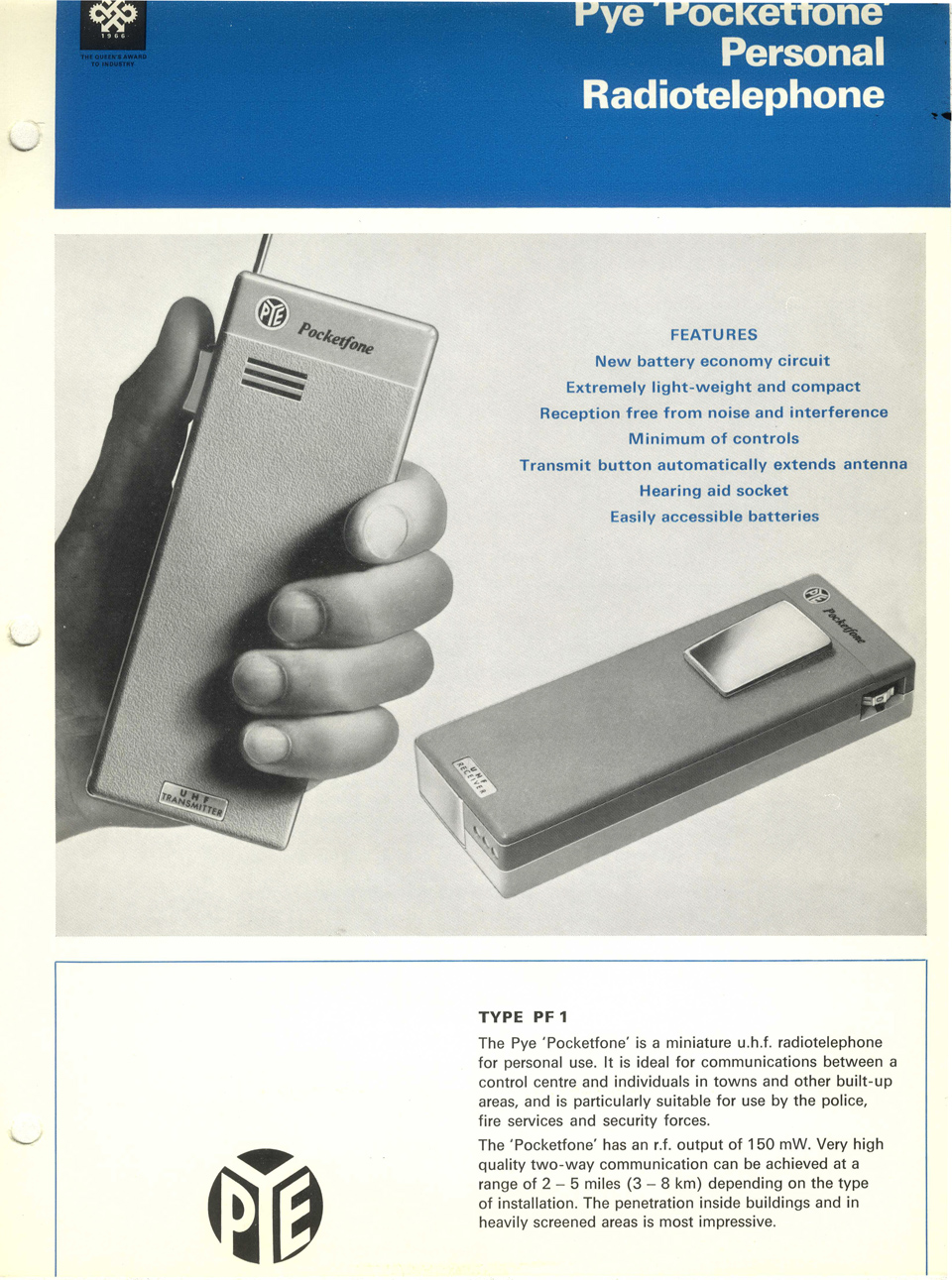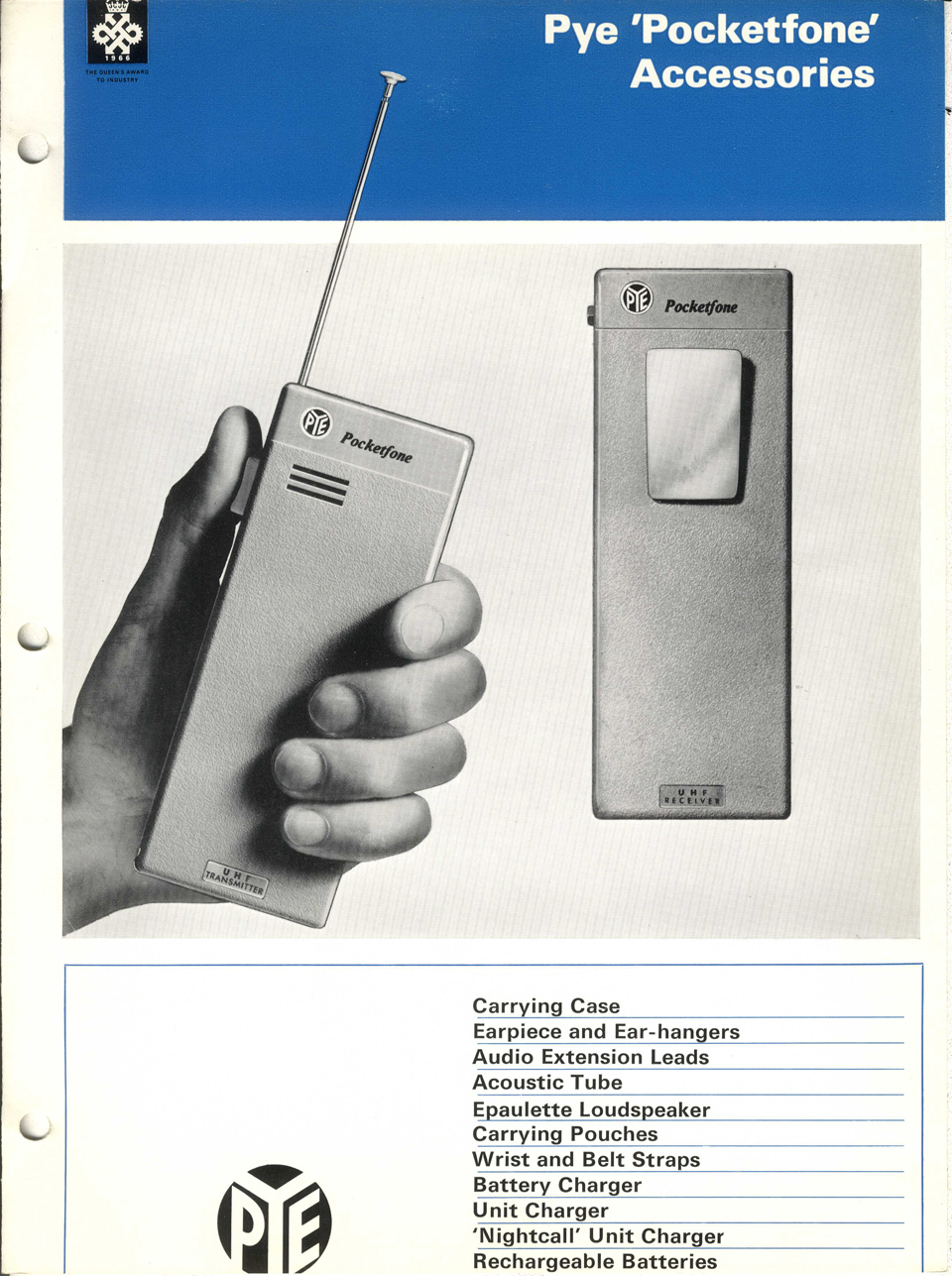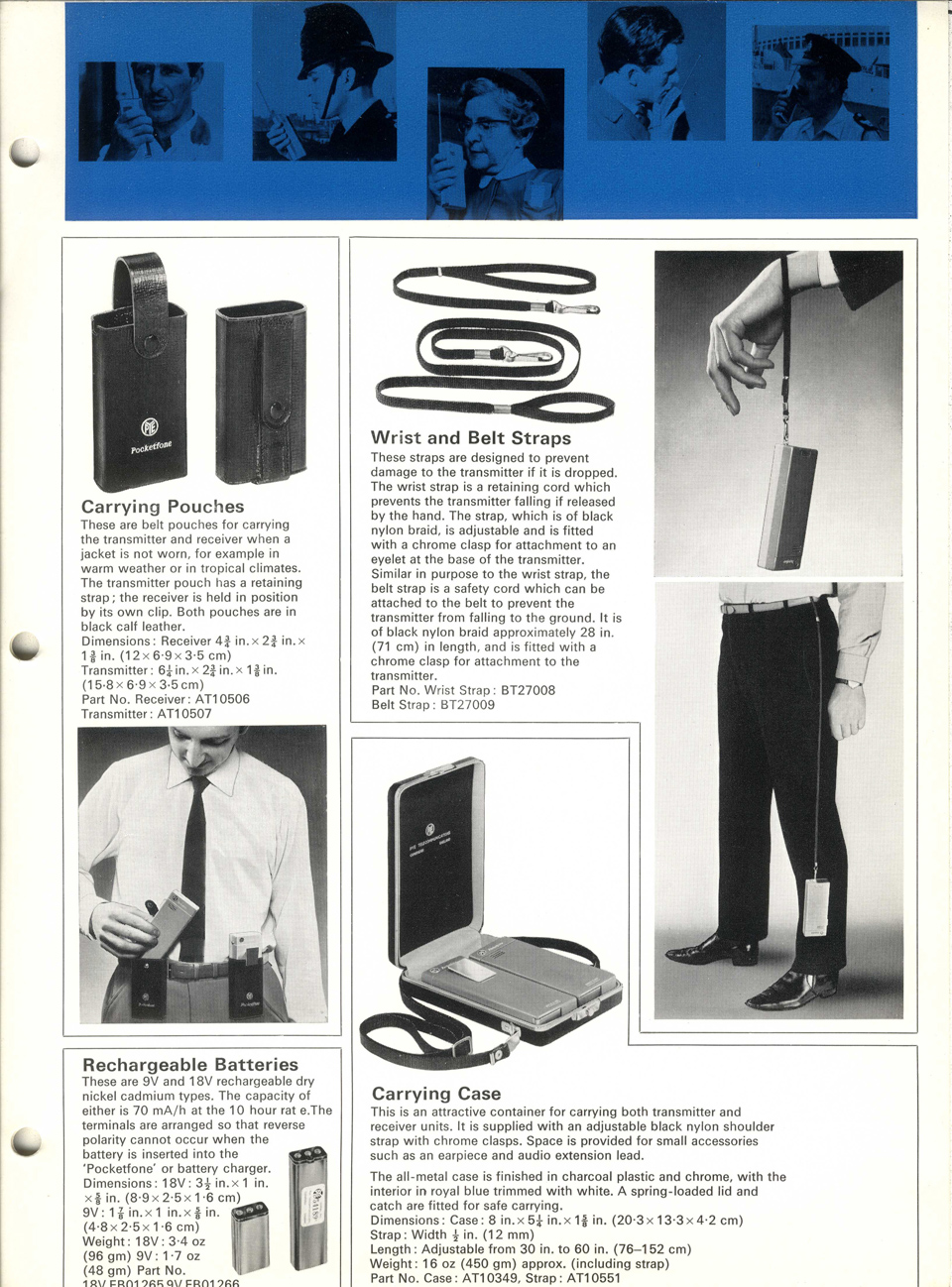The Pye PF1 won the contract for the first standard police personal radio. The specification originally called for a single unit radio with 3 channels and VHF, the introduction of a two piece unit and UHF therefore seems to be somewhat odd, however there was increasing political pressure to provide the police service with a personal radio with a scene in parliament where an MP lambasted the government for failing to provide the police with suitable equipment and pointed out that even midwives in Cambridge were using personal radios, these also happened to be Pye PF1s.
A number of trials took place with a number of sets and with the PF1 in particular in the city of London and Glasgow city police areas and the PF1 was found to provide good coverage inside police vehicles and buildings. Providing frequencies for the schemes caused some issues with the Post office who controlled frequency allocations reluctant to provide the Home office with more UHF frequencies unless the existing Home office civil defence links in the 451-452/465/-466Mhz band could be shown to be fully occupied. So the Home Office reallocated some of their existing UHF Home defence frequencies for police use. Initially there were 20 schemes on 10 50Khz channels allocated on a regional basis this was then increased to 23 channels as the roll out of the system progressed.
The Metropolitan Police however were not so keen on the PF1 and their trials found that the radio was fragile and performance below what they required and they instead opted for a single unit Storno CQP500 at High band VHF 147/155Mhz.as their personal radio






Privacy Policy
I do not collect nor will I pass any personal information to third parties from this site. Don't use cookies either.
D. J. MCKAY G1JWG 2017